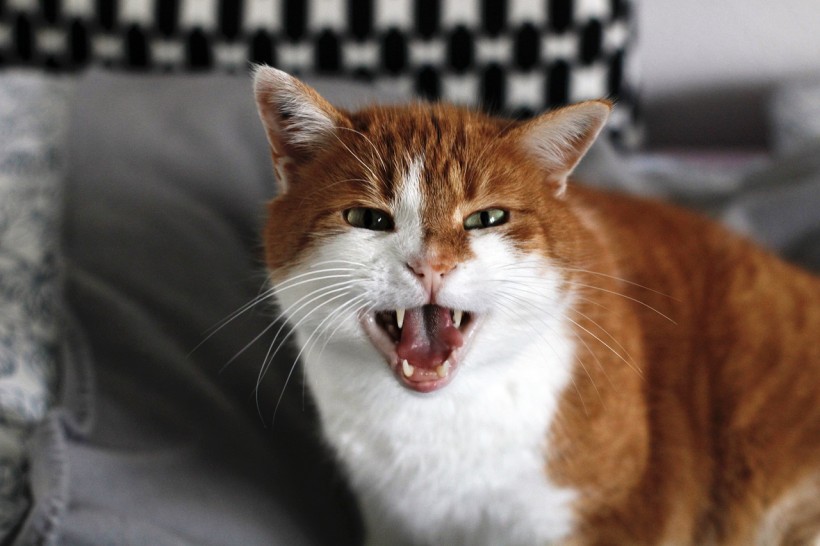Cats are commonly perceived as aloof, with memes during the COVID-19 pandemic joking about cats wanting humans to leave. However, this oversimplification doesn't capture the true nature of feline companionship. Unlike dogs, accused of unconditional love, cats are deemed calculative and indifferent, raising questions about the accuracy of this stereotype.

Unraveling Feline Mysteries: Do Cats Truly Love Us, or Is Their Affection a Calculated Maneuver?
The Science Behind Cat-Human Bond
Contrary to the popular belief that cats are aloof and disinterested in their owners, recent studies have offered nuanced insights into the complex dynamics of the cat-human bond. While it's true that cats may not express love in the same overt manner as dogs, they do exhibit signs of affection, albeit in a more subtle fashion.
In a 2015 BBC study on cat and dog neurochemistry during stroking, researchers discovered that both experienced increased oxytocin levels. Yet, dogs exhibited a notably higher average increase of 57.2%, hinting at a more intense positive response to human interaction compared to the modest 12% observed in cats.
Additionally, another study conducted in 2021 aimed at exploring the cat-human bond challenged the notion of cats being inherently aloof. Daniel Mills, an animal behavioral specialist at the University of Lincoln, said there is a lack of comprehensive understanding regarding the emotional relationships between cats and humans.
The study surveyed 3,994 cat owners, identifying five distinct cat-owner relationship categories, ranging from open detachment to close friendship. Results revealed a fairly even split, with about half of the surveyed relationships showing emotional investment, challenging the stereotype of cats as emotionally distant companions.
Claire Ricci-Bonot, the lead author of the 2021 study, emphasized the importance of emotional input from owners and the level of independence provided to cats in shaping social relationships.
While acknowledging an emotional bond between cats and owners, she also questioned the nature of attachment, especially when compared to the more overtly loyal behavior exhibited by dogs. This implies that the cat-human relationship is intricate and varies based on individual personalities, socialization, and living conditions.
Furthermore, a 2019 study underscored the effort required from owners to build a strong bond with their feline companions, contrasting the more effortless connections observed with dogs. An earlier study published in 2008 added weight to the significance of cat-owner relationships by indicating an increase in the blood pressure of cats when encountering bonded humans, suggesting a level of emotional connection.
The intricate nature of these relationships was further highlighted in a 2021 study, revealing that cats prefer a "hands-off" approach to petting and gravitate towards individuals who respect their cues, showcasing the nuanced and individualized nature of cat-human bonds.
Cats' Selective Nature Don't Mean They Hate Humans
Cats, being both predators and prey, developed a cautious disposition as a survival mechanism, with those who were overly trusting facing earlier extinction. Human mistreatment of cats contributes to their skepticism of unfamiliar individuals, as not every human interaction has positive intentions.
Unlike dogs, cats require time to warm up to new humans, and building trust is crucial. Misunderstandings often arise when people expect cats to behave like dogs, disregarding the distinct species differences.
They are selectively social, forming bonds once trust is established, and not all cats immediately dislike humans. Human behaviors, such as staring, may be perceived as threatening by cats, impacting their affinity.
While a minority of cats, around 15%, may not be inclined to cuddle, most cats don't inherently dislike humans, expressing their feelings in subtle ways that require understanding cat body language for better comprehension.
RELATED ARTICLE: Blinking Slowly Could Be an Effective Way To Communicate With Cats, Study Reveals
Check out more news and information on Cats in Science Times.




![Earth's Quasi-Moon Kamo‘oalewa Could Originate From Lunar Surface Not Asteroid Belt [Study]](https://1721181113.rsc.cdn77.org/data/thumbs/full/53275/89/56/50/40/earths-quasi-moon-kamo-oalewa-could-originate-from-lunar-surface-not-asteroid-belt-study.png)









